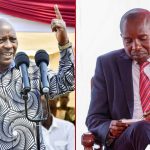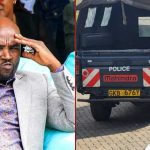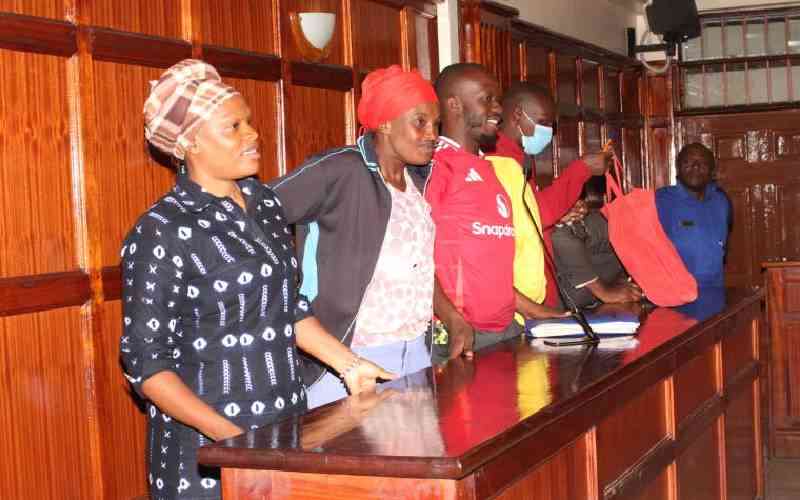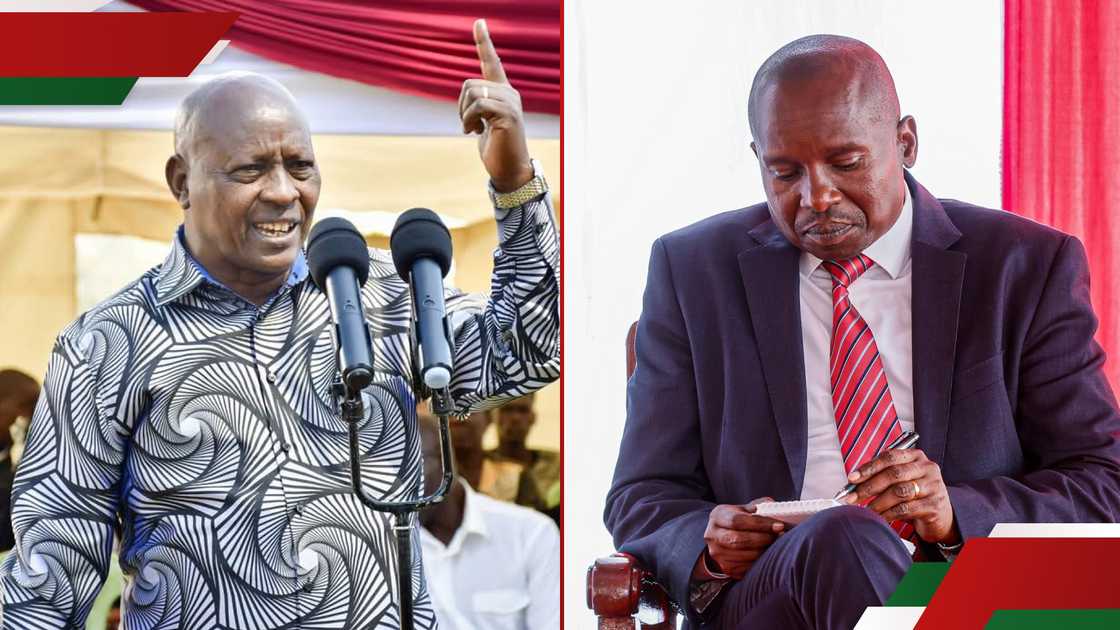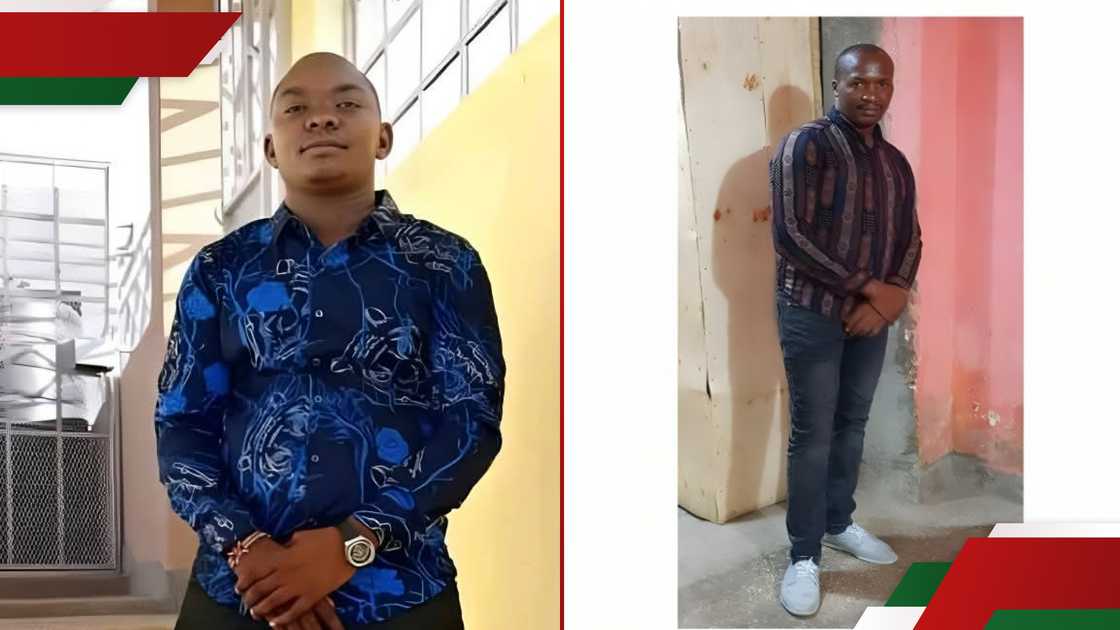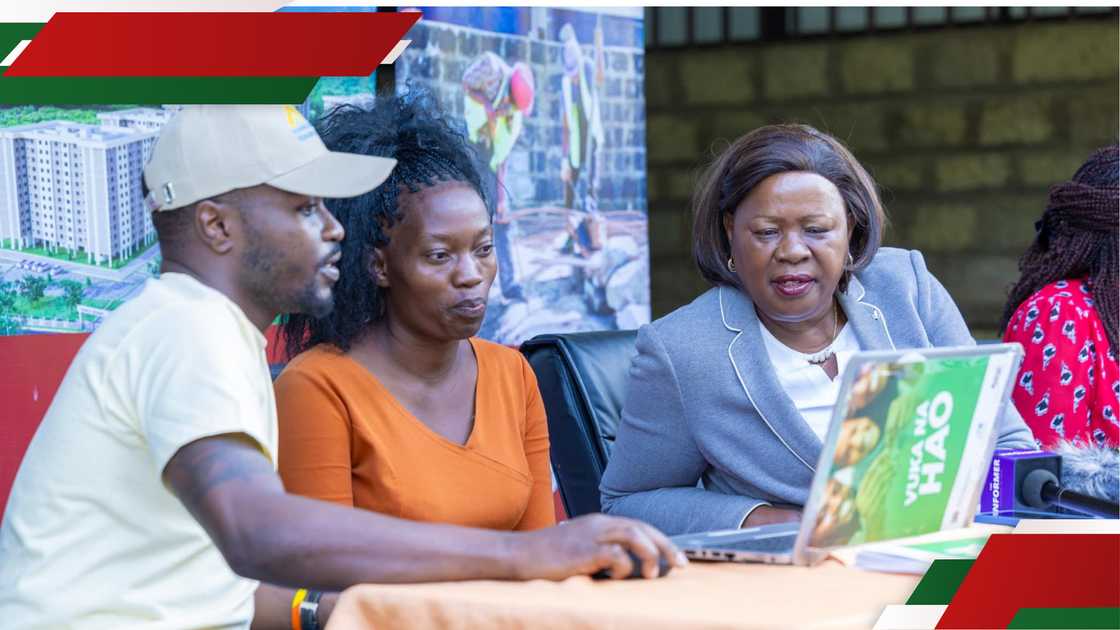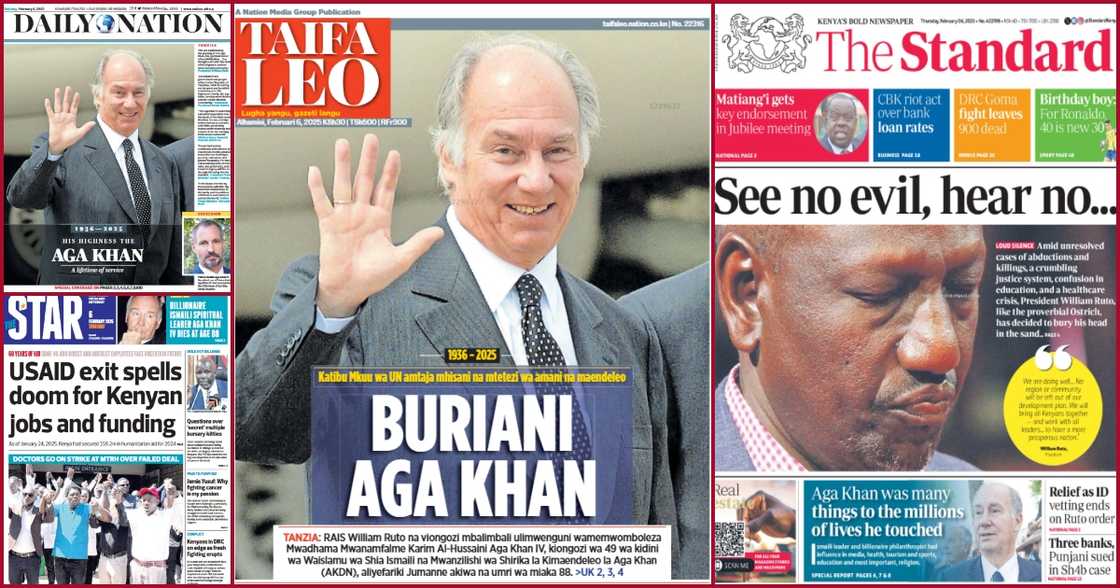In a startling revelation before a Nairobi court, it has emerged that one of the suspects in the murder case of former Kabete MP George Muchai has been accused of receiving a mysterious payment just hours before the tragic killings.
According to testimony presented before Milimani Chief Magistrate Lucas Onyina, Raphael Kimani Gachii, alias Kim Butcher, denied claims that the late Muchai’s driver, Stephen Wambugu, had sent him Sh30,000 hours before the tragic incident.
The incident, which occurred on the morning of February 7, 2019, saw Muchai, Wambugu, and two of his bodyguards Samuel Kailikia and Samuel Matanta shot dead in cold blood at the Kenyatta Avenue-Uhuru Highway roundabout in Nairobi.
The four were driving in a Toyota Fortuner when a masked, lone gunman believed to be Kimani’s co-accused Eric Isabwa shot them at close range at about 2:30 am as they stopped to buy the day’s newspapers.
The disclosure of the monies came during the defense of Kimani who has been found with a case to answer over 10 charges of the robbery with violence of six victims two of whom were sisters, Gladys Waithera and Irene Muthoni.
The prosecution had earlier presented testimony of 36 witnesses including police officers who claimed that Kimani and his co-accused person were involved in a series of robberies, which allegedly occurred five hours before the murder of Muchai, his driver, and two aides.
READ: Why Kabete MP George Muchai was killed
Kimani, 44, a butchery operator, acknowledged that he had received the money, but vehemently denied any connection between the payment and the murder, explaining that it was related to a business transaction involving a large meat order.
“Your honour I was operating a butchery and I had two employees. I used to roast meat for customers even in their homes if they called and requested. My telephone numbers were all over, from Westlands ABC Plaza to Gitaru Junction where I had produced posters advertising my work,” he said.
The money in question, according to Kimani, was sent by a caller who had placed an order for 50 kilograms of roasted meat and 100 pieces of roasted bananas, which were priced at Sh500 per kilogram and Sh30 per banana, respectively.
According to Kimani, the caller also included a tip of Sh1,000 for his two workers.
Kimani clarified that he did not handle the business phone, which he claimed was used by his staff to manage orders.
Stay informed. Subscribe to our newsletter
“It was just a regular business transaction. The Sh30,000 was for the meat and the bananas, with an additional tip for my staff. I had no personal contact with the person who called. He was just a customer,” Kimani explained, rejecting any suggestion by the prosecution that the money had anything to do with the murder.
However, the timing of the payment raised suspicions, given that it was made just hours before the tragic murders took place at the GPO, the scene where Muchai and his entourage were killed.
Kimani’s defense contradicted the prosecution’s evidence, presented earlier by police officers and forensic experts, which claimed he had received money from Muchai’s driver in connection to the murders.
This was especially significant given his alleged involvement in earlier robberies of six victims just hours before Muchai’s death.
Kimani said to be a former convict on charges of robbery with violence in 2010, is also alleged to have been the driver of a white Mercedes Benz that struck Muchai’s vehicle on the right side at the GPO
The vehicle had been stolen from two women around 10 p.m., with the victims reportedly bundled into the boot and their phones used to call their co-suspects.
Kimani, born in Kangemi, Muthangari, narrated the events surrounding his arrest on February 14, 2015, seven days after the killings.
He described receiving a phone call from an unknown number, which he assumed was a customer. After answering, however, there was no response from the caller.

“I picked up a call from a new number, but the caller stayed silent. I thought it was a customer, but after 15 minutes, I heard a knock on my door,” Kimani recalled.
ALSO READ: George Muchai murder: Creepy mystery of assigned wife and places of arrest
When he opened the door, five armed police officers entered and pushed him back to the house.
He described how one of the officers struck him in the head with the butt of a gun, knocking him to the ground.
Kimani denied the prosecution’s claims that officers who stormed his house, RJoan Enterprises in Kinoo, recovered a Ceska pistol belonging to Muchai’s bodyguard, with the firearm’s serial number allegedly erased
“Despite a thorough search of my rented house, the officers found nothing of interest,” Kimani told the court.
The court heard that after they failed to recover whatever they were looking for, one of the officers questioned him about the Sh30,000 sent by Muchai’s driver.
The officer, in Swahili, allegedly asked him, ‘Ndereva wa Muchai alikutumia pesa ya nini?’ or ‘What did Muchai’s driver send you money for?’ Kimani admitted to receiving the payment but insisted it was for a meat order, not for any criminal purpose.
He said that he was later handcuffed, and bundled into a waiting car before a sack was put covering his head and the upper side of the body.
The police took his Techno and Nokia phones and took him to Nairobi area.
At the station, they continued to interrogate him about the money which was sent via the number alleged to be of Muchai’s driver who he persistently claims not to know and who he was. He thought he was a customer like others,
“I received the money for the order, but I had no personal dealings with Muchai’s driver. I only assumed he was a customer,” he reiterated.
“I used to receive many calls and acknowledged them as customers since no other interaction I used to have with them.”
Kimani also stressed that the transaction was handled by his employees, John Ndegwa, who died in 2021, and Francis Kamau, who he claims he has lost contact with over 10 years.
The prosecution’s case against Kimani and his co-accused has been built on circumstantial evidence linking them to the murder.
Kimani further added that the arresting officers relocated him several times to the Railways Police Station and then took him back to the Nairobi Area.
In the station, he said police took him to Rhodes Hospital to have his blood samples taken but the attendant refused requesting the order from the court.
They also took him to Mbagathi Hospital seeking the same but the attendants refused demanding an order from the court.
Kimani was eventually presented before the court, where the Magistrate ordered that he be taken to the government chemist for DNA sampling extraction and treatment for head injuries sustained during his arrest.
While urging the court to acquit him, Kimani who is facing robbery with violence charges and murdering of the former Kabete MP George Muchai consistently denied meeting or working with his co-accused, asserting that he was not part of any criminal group.
ALSO RE: Life and times of fiery trade unionist turned-astute politician George Muchai
“I am innocent. I did not know the other suspects. I have never met any of them,” Kimani said in court.
The co-accused include Eric Isabwa, Mustapha Kimani, Stephen Astiva, Jane Wanjiru, Margaret Njeri, and Simon Wambugu.
Kimani who has since been put in his defense told the court that he is innocent and he came to know the reason for his arrest during a miscellaneous application in court seeking his detention.
On March 19, 2015, he told the magistrate that he was astonished when he was charged in court alongside six others with offenses of having a firearm without a license and having 15 rounds of ammunition.
This after investigation officer Sergeant Moses Otiu Opiyo attached at DCI headquarters Serious Crimes Unit told the court that Isabwa and his co-gangster Kimani stole a Ceska pistol belonging to one of Muchai’s bodyguards Lekakey which they erased the serial number to conceal its identity.
The case, which has been ongoing for years, saw the prosecution call 36 witnesses, including police officers, civilians, and experts, all of whom have linked Kimani and his co-accused to the violent crimes.

